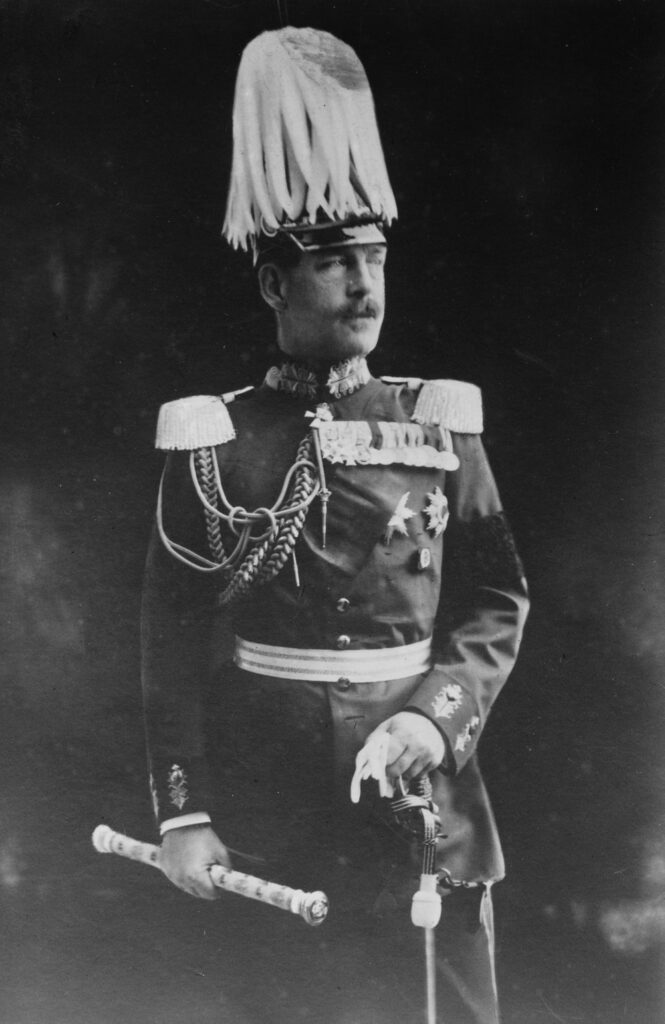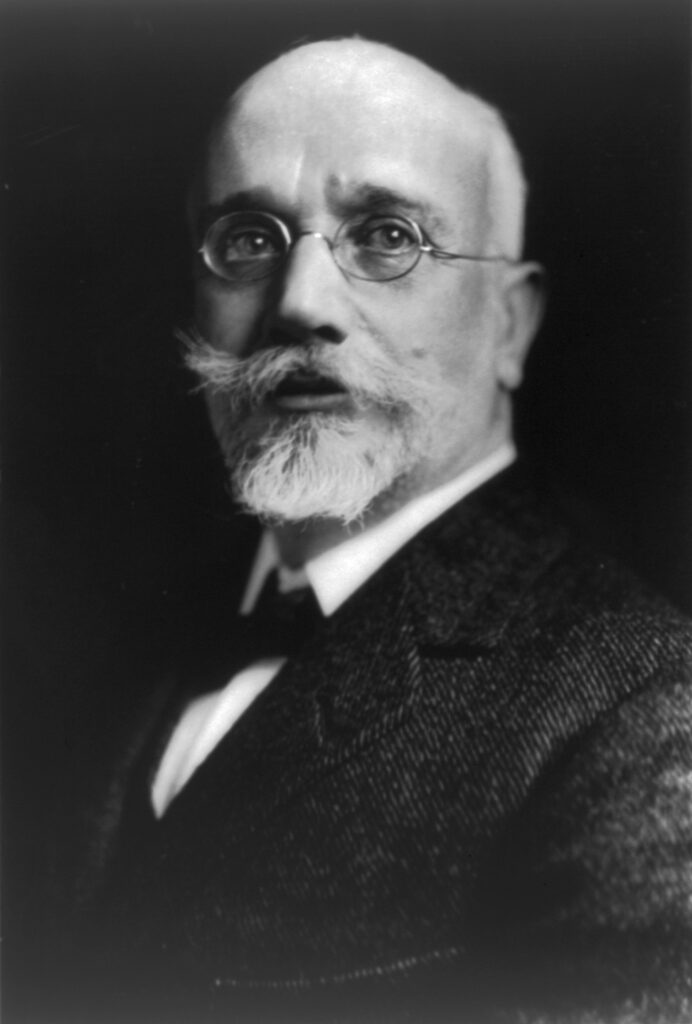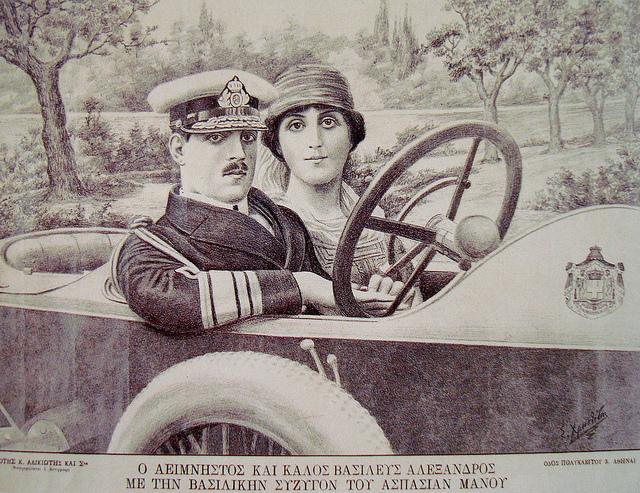One Hundred Twenty-Four Years Ago, a Malicious Macaque Merked a Monarch
There are any number of major historical events that have taken place on the 25th day of October over the centuries:
- Perhaps most famously, the English decisively beat the French at the Battle of Agincourt in 1415.
- In the US in 1929, the Teapot Dome scandal culminated with the first criminal conviction of a sitting cabinet officer — Interior Secretary Albert B. Fall — for accepting a bribe while in office.
- The famous “Charge of the Light Brigade” happened on the Crimean peninsula in 1854.
- Today is the late artist Pablo Picasso’s birthday. The renowned surrealist and co-founder of Cubism was born in 1881.
- And Weymouth, Massachusetts was the site in 1764 where founding father and future US President John Adams married Abigail Smith.
Today, however, I am going to eschew the conventional and instead explore a somewhat obscure but quite consequential and exceedingly bizarre incident that ultimately changed the course of history in a significant portion of the Near East and Europe.
The day was October 25, 1920 — 104 years ago today — when one of the strangest occurrences in the history of European royalty culminated in the death of the young King Alexander I of Greece. The passing of the dashing young monarch after a freakish and tragic accident became a pivotal moment in Greek history. His death — caused by a seemingly inconsequential monkey bite — not only ended his short reign but also had far-reaching political consequences for Greece. The story of King Alexander’s demise is as curious as it is tragic, and its impact on the trajectory of modern Greek history would be difficult to overstate.
Turbulent Post-War Times in Greece
King Alexander was the second son of King Constantine I of Greece and Queen Sophia of Prussia. He found himself on the throne in 1917 when his father was forced to abdicate in the political turmoil surrounding Greece’s role in World War I. At the time, Greece was deeply divided between the Royalists — who supported the pro-German King Constantine — and the Venizelists, who favored the Allied powers. The Allies — led by Britain and France — pressured Constantine to step down because of his German sympathies, and Alexander — then 24 years old — was installed as a compromise figure. Real power, however, rested with Prime Minister Eleftherios Venizelos, who had aligned Greece with the Allies during the Great War

From George Grantham Bain Collection – Public Domain,
https://commons.wikimedia.org/w/index.php?curid=3440468
War Versus Turkey
Alexander’s reign would last only three years, during which the young king had little choice but to follow the political direction set by his prime minister. This included Greece’s involvement in the final years of World War I and the subsequent Greco-Turkish War (1919-1922), during which Greece sought to expand its Asia Minor territory at the expense of the collapsing Ottoman Empire.
Initially, Alexandor leaned Royalist in his political views. Over time, though — and especially during his reign — he came to like and respect Venizelos, becoming more sympathetic to his Allies-aligned ideology and foreign policy.
The Bite That Changed a Nation
On September 30, 1920, King Alexander went for a walk in the royal estate of Tatoi, just outside Athens. During this outing, his pet dog got into a scuffle with a Barbary macaque that belonged to one of the palace functionaries. As Alexander attempted to separate the combatants, the monkey bit his royal person on the leg. Though the wound did not seem serious at first, it rapidly became infected and then septic.
Alexander’s condition defied all attempts at treatment and rapidly deteriorated. He suffered severe pain and high fever for nearly a month before finally succumbing to his injuries on October 25, 1920.
Political Repercussions
The demise of King Alexander set off a chain of events that significantly altered the course of Greek history. His death came at a critical juncture during the Greco-Turkish War, and it threw the political situation in Greece into chaos. For a time, it looked like the Greek monarchy would not survive the turmoil.
The Royalists — sidelined during Alexander’s reign — jumped at the opportunity for the restoration of his father Constantine, who was then reinstated as king in December of 1920.

Photoprint Copyrighted by Harris & Ewing – Public Domain,
https://coommons.wikimedia.org/w/index.php?curid=2707085
This was an almost immediate disaster. Constantine’s return alienated the Allies, who had backed Greece during their war with Turkey. Consequently, Greece lost critical military and financial support from Britain and France at the worst possible time: In the middle of its war with Turkey.
The war had initially been going well for Greece, but this was not to last. In 1922, Turkish forces decisively defeated the Greek army, resulting in the disastrous loss of Smyrna (modern-day Izmir) and the expulsion of the Greek population from Anatolia. This event — known as the “Asia Minor Catastrophe” — marked the sudden end of Greece’s territorial ambitions in the region and led to a massive humanitarian crisis. The defeat also triggered political instability in Greece, which led to a second abdication by Constantine in 1922.

Image by Sotiris Christidis — Public Domain
https://commons.wikimedia.org/w/index.php?curid=24953636
A Mixed Legacy
King Alexander’s death by monkey bite was both bizarre and tragic. Seeming almost absurd on its face, the incident’s consequences were nevertheless grave. The young monarch’s untimely death led to Constantine’s ill-fated return. This in turn contributed to Greece’s catastrophic military defeat and resulting turmoil. The ensuing political crisis would permanently alter the nation’s political landscape, and not for the better.
Had Alexander lived, it is quite possible — perhaps even likely — that the calamitous course of the Greco-Turkish War could have been averted. Prime Minister Venizelos would have retained greater influence without the complications of a Royalist resurgence. Such a state of affairs could only have boosted the Greek war effort — perhaps tremendously so. As a result, Greece would likely have retained at least some of its territories in Asia Minor. But of course this is just speculation.
* * * * * * * * * * * * * * * * * *
So there you have it. King Alexander’s brief reign and sudden death highlight the precarious balance of global power in the early 20th Century. Unexpected events — even those which may seem inconsequential at first — could and have altered the fate of nations. Damn monkey.
By Steven Roberts


